Money doesn’t just disappear. Every stolen dollar must be found – or we will not survive
In this second extract from his biography Alexander Lebedev identifies a third and more brazen form of colonialism, one based on the subversion of elites, teaching them how to manipulate finance and siphon money into offshore centres that benefit Western economies

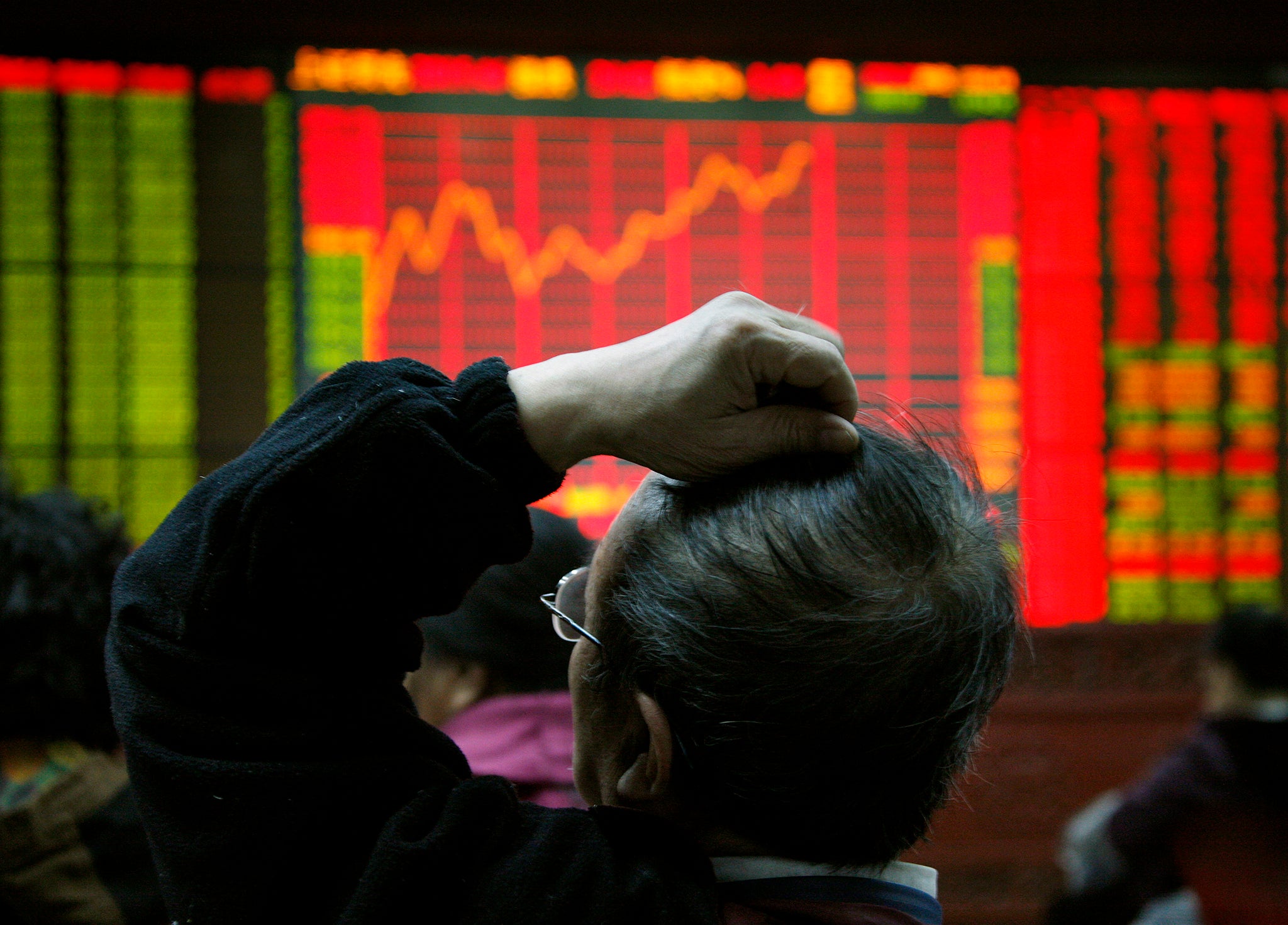
All my life I have been fascinated by how people react to wealth, serious money and what it can buy. There was a time when I lived with my parents and brother in a 30-square-metre apartment. For years I darned my one and only pair of jeans. As a boy it took me three weeks to save the seven kopeks needed for an ice cream, and as a student I thriftily collected the deposit on bottles of the cheap alcohol I and my friends drank (which cost a ruble fifty for an 800ml ‘fire extinguisher’). I was far happier then than I was in the noughties.
Even making it on to the Forbes rich list was no big deal. It seems to me that if you have a few thousand dollars a month to cover the everyday necessities (what it is now fashionable to call an ‘unconditional basic income’), then anything above that will not make life appreciably better, and may well make it worse. I find that the only people with a fortune who deserve respect are indifferent to it or, better still, despise it.
We spend a third of our lives sleeping, and asleep everyone is equal in the property stakes. What difference is there between us in the shower, washing our faces, brushing our teeth, combing our hair? We all pay the same for water. Okay, there is social differentiation in the toiletries we buy, but no evidence to suggest that costly creams or lipsticks do anything for us. In fact, we see plenty of examples around which suggest the opposite. Expensive operations to alter lips, noses, breasts or backsides often leave their victims looking not more but less attractive. You can buy sports clothing, but not the shape, the fitness of your body. How well you work out on the treadmill, horizontal bar or weight machine depends not on how much you pay, but on how much graft, sweat and time you put in.
We spend several hours every day eating, and the truth is that the simpler and cheaper the food, the more wholesome it is. The ideal menu consists of buckwheat (40 rubles/60 cents a kilo), extra virgin flaxseed oil, vegetables, and a modest amount of fish. For this bounty you will pay 60–70 rubles, about a dollar a day. Everybody earns at least a dollar a day, except perhaps for some Papuans or pygmies living on the verge of starvation, and the average standard of living of the world’s population is equivalent to an income of at least several hundred dollars a month.
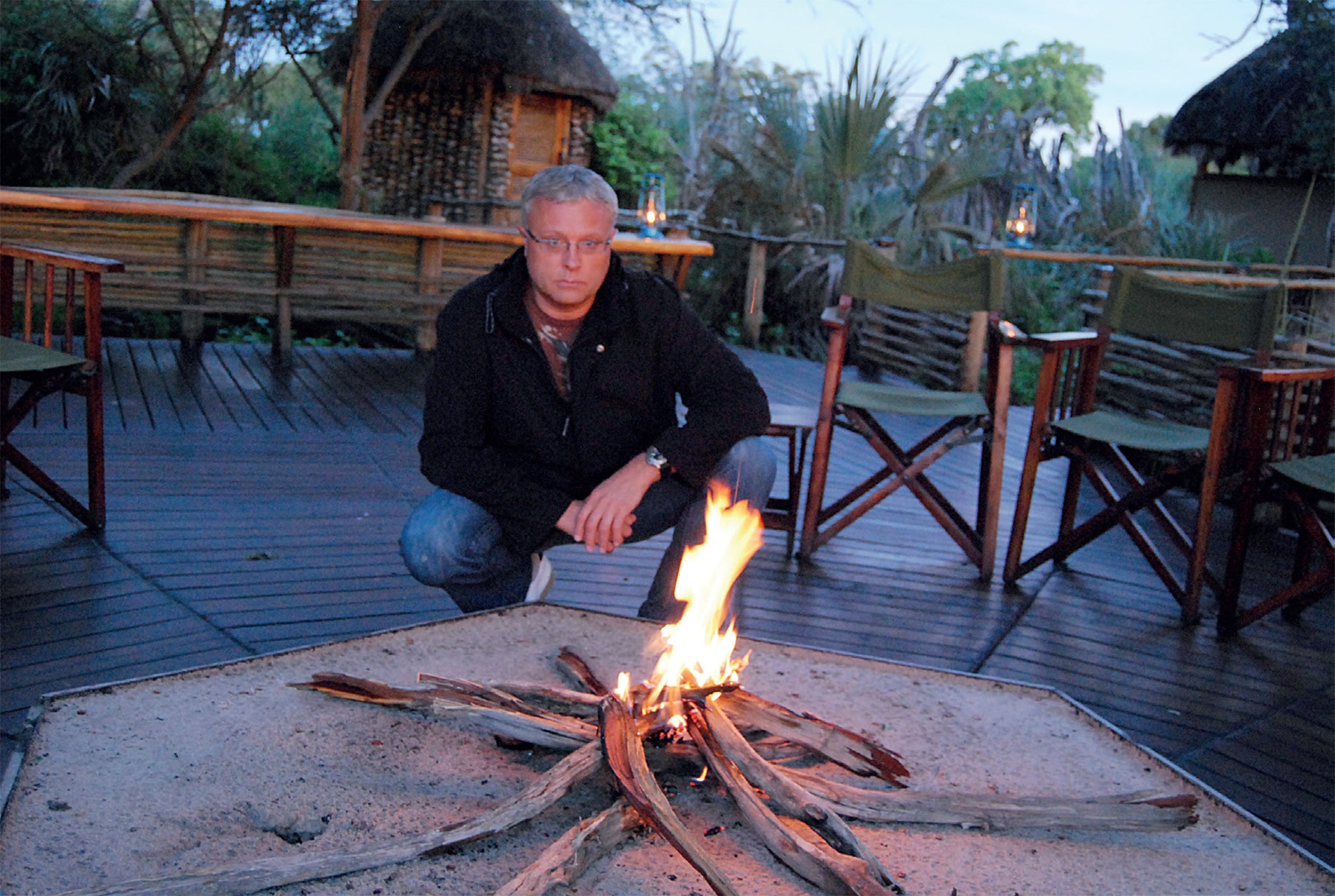
There are differences in how we dress. Someone’s well-off mistress will be able to array herself in jewellery and finery costing tens of thousands of rubles, and still not look a patch on a girl with the willpower needed to make a hobby of pole dancing, practise yoga, to keep fit and run for two hours a day. You cannot, alas, learn a foreign language by paying money: you need a flair for it, or at least motivation and perseverance. Buying a university degree is no longer encouraged even in Russia, and if someone pays to put you on the stage, they will succeed only in making a laughing stock of you. Sex, of course, you can buy, although only unlovable addicts manage to spend big money on it. I know quite a few who do, but even so their budgets add up to no more than a few hundred thousand dollars a year. Well, maybe that is a lot, but don’t be jealous: try to get it for free.
Nothing in life is achieved without effort, and wealth makes it no less strenuous. You can write a good book or create a successful business only through ability and hard work, and neither is contingent on finance. Quite the reverse: easy money often leads only to losses and failure. The person with billions frequently has a physical sense of alienation from their capital. Money warms only a shallow soul. It shrivels the heart, gives no peace, and problems proliferate. You are at risk of acquiring bad habits, not least the habit of paying girls for their services, a sin I too have been guilty of.
Money warms only a shallow soul. It shrivels the heart, gives no peace, and problems proliferate. You are at risk of acquiring bad habits, not least the habit of paying girls for their services
Fortunate are those who compensate by spending millions of dollars on charity in all its forms. My urge to invest in the least easily realisable projects – agriculture, wholesome food, hotels in Crimea (rather than the Maldives), air transportation, affordable housing and so on was evidently prompted by a subconscious longing to free myself from the burdens of wealth. In the middle of the second decade of the 21st century, I had the good fortune to be relieved of a considerable portion of my business interests: my share of Aeroflot, my banking, my Red Wings budget airline and the Ilyushin Finance Company. Paradoxically enough, this has all been to the good. I have gone back to trying to achieve things in life for myself, rather than in order to make money.
Is the life of a billionaire all that different from the life of averagely well-off people who are in harmony with themselves and the world around them? We can discount the virtual money in bank accounts which, as we have discovered, contributes nothing in terms of personal development. There is one clear difference, of course, and that is how much stuff they have. I have noticed that the average person on the Forbes rich list has at least one business jet, five or six mansions and apartments, and a yacht (sometimes two). The rest of their money, however, is tied up in their businesses.
On close inspection, you find there is an inverse correlation between the impression they make as human beings and the amount they have invested in real estate. It rarely exceeds some hundreds of millions of dollars, but the more they have invested, the less personable they are. They have lacklustre eyes, look abysmal, have a toxic personality and an off-putting physical appearance. This is the result of trying to buy something that can only be obtained through your own efforts, willpower and hard work. People are so much more pleasant who have not been spoilt by wealth, people like Warren Buffett, who gets around by taxi where he lives in Omaha.
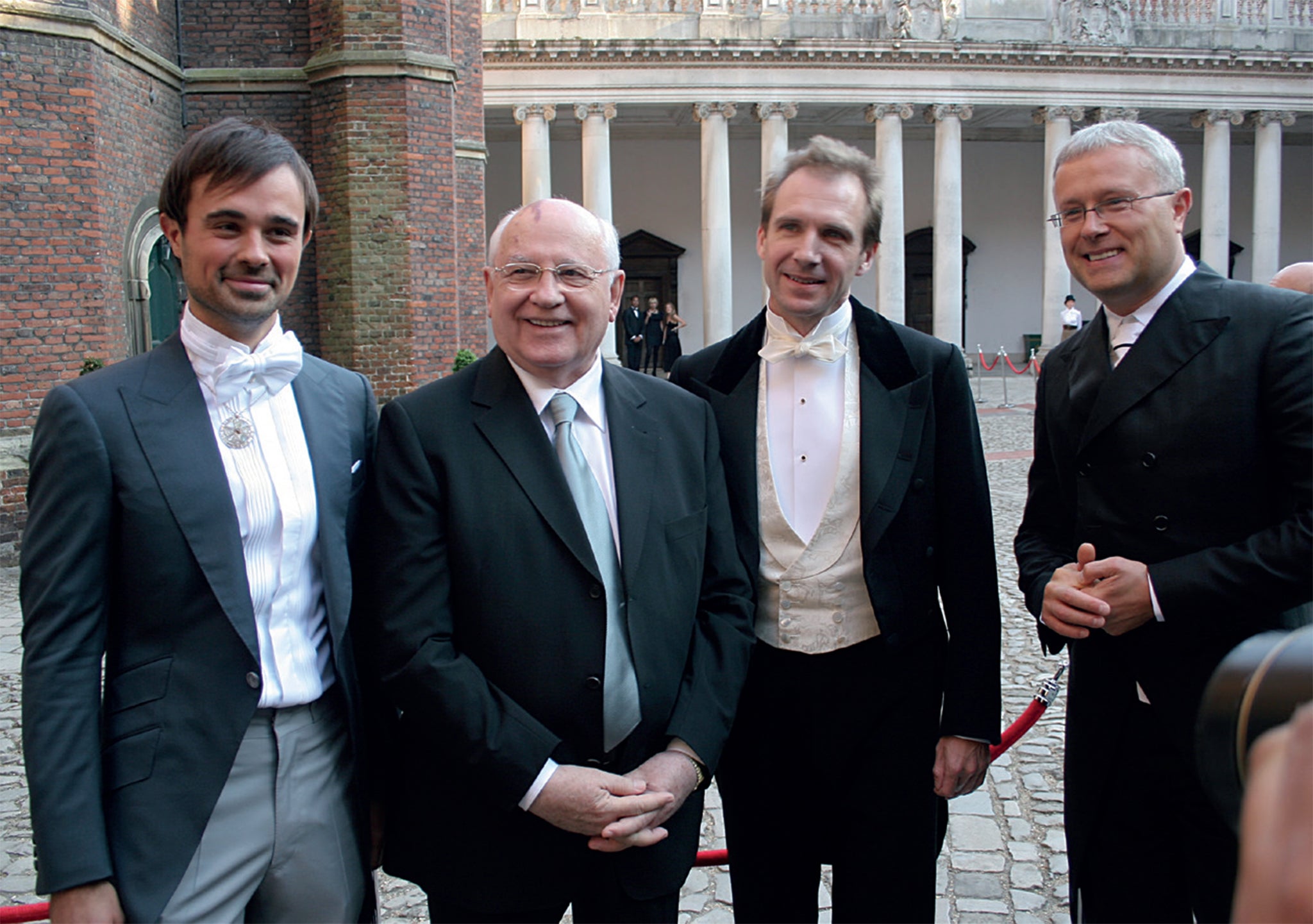
Do people really feel at home if they live in a house with 5–7,000 square metres of floor space and 25 bedrooms? Well, maybe. The passion for accumulating expensive properties is rooted in vanity. These people aim to show off their needy superiority to the rest of the world and have no other way of doing it. Many of the super-rich hardly use the things that belong to them and would be glad to be rid of them, but that is not easy. The human race is developing a kind of consensus on the level of personal consumption expected of billionaires. I hope the social networks will soon ridicule those who emulate Philip Green rather than Warren Buffett, and instead respect people who put money into hospitals, libraries, museums and other public amenities.
I would also like to see closer public scrutiny of how money raised for charity is actually spent, because of the half a trillion dollars donated annually, at least half ends up in the pockets of fundraisers and ‘managers’. Perhaps I should write another book about that. In Russia and abroad it is very much in evidence. Recently a diva prominent in the lush pastures of charity fundraising invited her sponsors to her town. They knew that over the past 12 years she had raised over $100 million, yet all she had now to show them was a couple of children’s playgrounds and a facility for sick kids that extended to all of a hundred square metres. Not much, you might think.
The outcome is that the money has gone from your wallet and is now in someone else’s pocket. Every day the money of millions of people pours into the pockets of a select circle of people, and nobody does anything about it
With this digression, which is important for understanding my motivation, let our story begin. I hope that some day I and the venerable Professor Vladislav Inozemtsev, one of Russia’s most eminent economists, will jointly be awarded the Nobel Prize for our discovery of the Law of the Third Colonialism (unless by then it is being awarded to whoever gives the biggest bribe). The prestige of the Nobel Prize, alas, has been severely dented after it was so inexplicably awarded to Barack Obama, and to a European Union which is falling apart before our eyes.
Black holes of the global economy
Just as Adam Smith discovered, and Karl Marx elaborated, the theory of surplus value featuring money, goods and labour, so Inozemtsev and I have discovered and described a system of black holes in the global economy into which money disappears simultaneously throughout the world and then, after laundering, reappears in a certain secret pool. Hard work, knowledge and experience have no bearing on the contents of this pool, and we feel fully justified in claiming for ourselves the status of a Stephen Hawking, only in economics.
Let us picture the economic system as an organism in which money is the blood supplying vital energy to the various organs. Banks are the circulatory system and serve a purely technical function: the heart pumps blood and the arteries deliver it to where it is needed. Adam Smith wrote in An Inquiry into the Nature and Causes of the Wealth of Nations of the importance of trust in the ‘fortune, probity and prudence’ of those seeking credit. In the case of a banker, a country’s population needs to be confident that he will be able to redeem on demand such of his promissory notes as may be presented to him. Where that is the case, his notes are accepted as readily as cash.
For pumping the money on its way, a whole empire of offshore jurisdictions has been created where these parasites can call on the services of top-notch lawyers, nominee directors, and tens of thousands of companies dedicated to the laundering and storing of dirty money
In the modern world, however, everything is different. Let us suppose you have a legal income. Part of it is immediately taken off you by the state in taxation. Another part you spend on your personal needs. If there is anything left over, you deposit it in a bank. But whereas you can keep a close eye on the money in your wallet, once it is with the bank it is out of sight. Keeping an eye on it is now, in theory, the responsibility of the Central Bank, but it can too easily fall under the influence of dishonest bankers and their patrons, who give little thought to the welfare of society or, indeed, even to ensuring that the money you deposited is at least secure.
Shortly afterwards, having been transformed from rubles, rupees, pesos, dinars and yuan into US dollars, the money ends up in an immense, fetid reservoir, that very same pool of the world’s leading banks and investment funds in 33 unassailable offshore tax havens protected by lawyers, law courts and politicians. You will be told (if you presume to ask) that there has been a crisis, a bankruptcy, force majeure or whatever. The outcome is invariably that the money has gone from your wallet and is now in someone else’s pocket. Every day the money of millions of people pours into the pockets of a select circle of people, and nobody does anything about it.
The international organisations whose job it is to monitor this, estimate that the reservoir of dirty money contains in excess of $60 trillion, which is close to the annual gross domestic product of Planet Earth. Every year another trillion is added to it. This is many times more than the revenues from drug trafficking, prostitution and the trade in human organs, against which a relentless battle is waged. Why do we hear nothing about that trillion dollars derived from white-collar crime? Is that odd or is it odd?
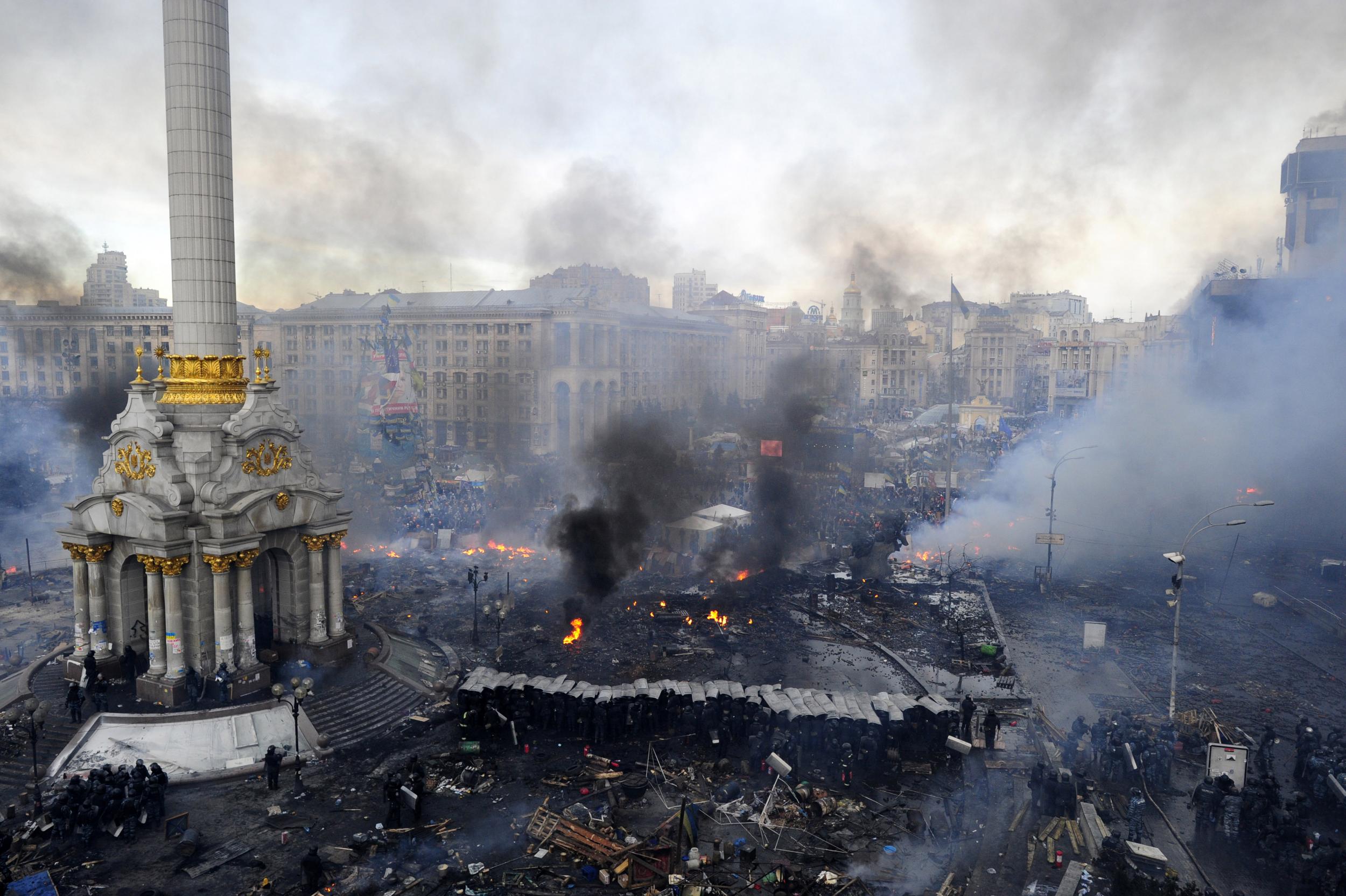
The evolution of robbery
Advocates of conspiracy theories claim there exists a shadowy, oligarchic, behind-the-scenes government that actually manages the global economy, and they recall the Rothschilds and the Rockefellers. Our discovery puts this previously unconfirmed hypothesis on a solid scientific basis. Is there a single gang capable of managing such colossal resources, as it sees fit and to its own advantage? Is it making use of vast sums of money to inflate financial bubbles in the global market, which lead to such cataclysms as the 2008 collapse? The bankruptcy of Lehman Brothers was only the trigger: the force behind the crisis was a massive subprime debt mortgage scam of bonds underwritten by substandard security.
At the G20 summit, it was officially acknowledged that the biggest crisis facing humanity is corruption and unjust redistribution of wealth
At the G20 summit, it was officially acknowledged that the biggest crisis facing humanity is corruption and unjust redistribution of wealth. China, almost the greatest economy in the world, is making enormous efforts to stop the diversion of the wealth of developing countries, which is being exported by corrupt elites and finding a home in bank accounts in London, Paris and Geneva. The leaders of the Western world acknowledge the need for cooperation in these efforts, but in practice their support amounts to no more than a little speechifying. Why?
I have discussed this problem with many of them, not least with three British prime ministers: Tony Blair, Gordon Brown and David Cameron. I detected no interest in the issue. Not one of the people I talked to had a vested interest in suppressing discussion, so is it somehow outside their remit? Do they consider it unimportant? Their attitude seems to be that there is nothing anyone can do about it. They seem to think mankind has more urgent problems to deal with: terrorism, nuclear weapons, wars, climate change, ecological crises. These are the issues politicians are taking seriously, and this small matter of the embezzlement of a trillion dollars a year is something they never quite seem to get round to. Is that not odd?
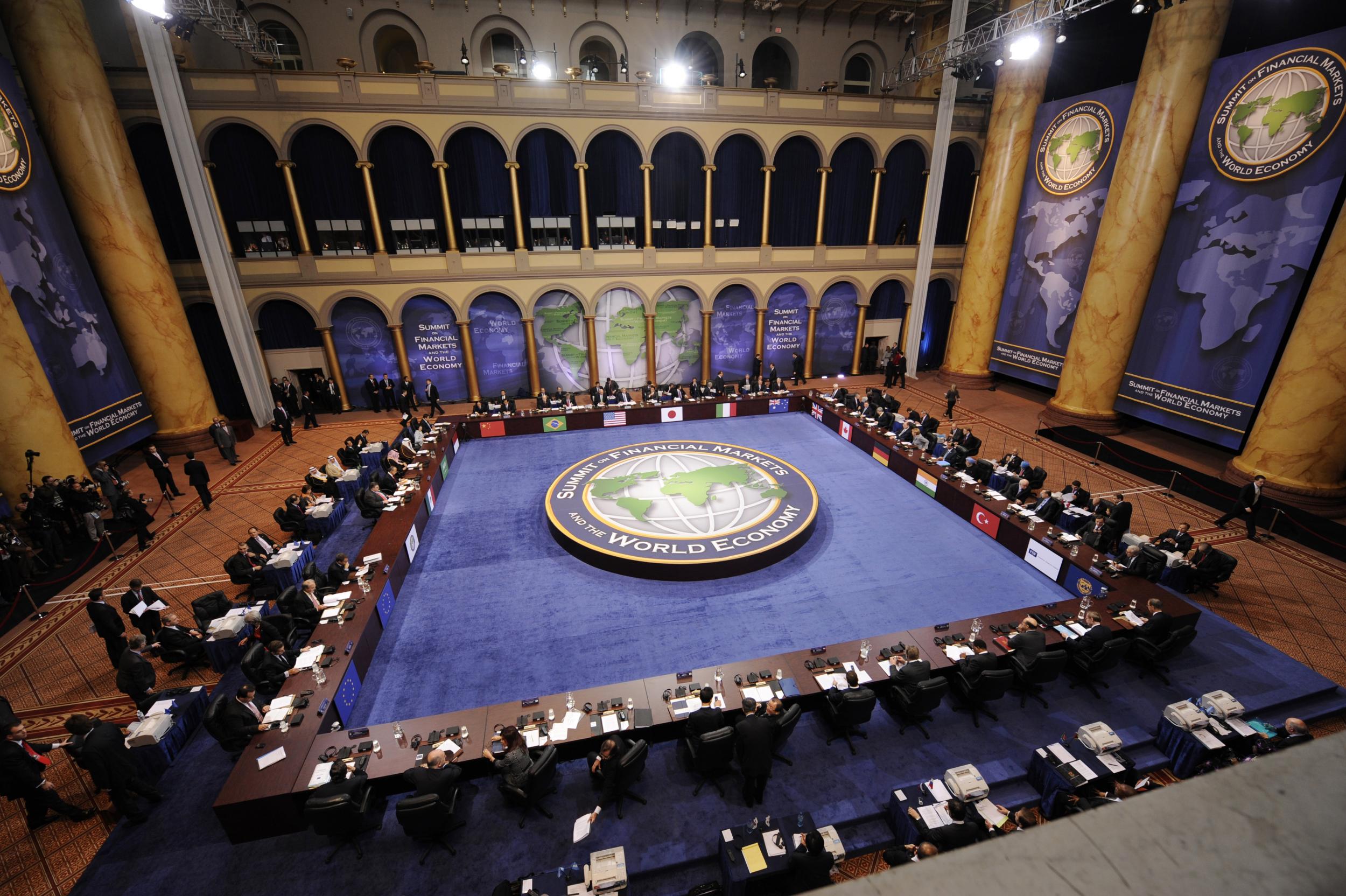
It is obvious that corruption in developing countries, a result of the way their societies are structured, is one of the causes of this enormous problem. If there was no plundering of resources by corrupt plutocrats in Africa, Asia, Latin America and the Middle East, people there would be better off, would not feel they were being denied their human rights and, probably, would be less susceptible to the influence of extremists. It is, however, Europe and the United States which, by creating a whole industry for sucking out and laundering money from developing countries, have introduced an insidious new form of colonialism, whose existence is studiously ignored by political leaders. The US is exploiting the situation to its own advantage.
For six centuries, European countries have dominated less economically developed regions of the earth. This period of history is admirably described by evolutionary biologist Jared Diamond in his Pulitzer Prize-winning book Guns, Germs and Steel.3 Europe has excelled the rest of the world in technology, especially military technology. Thanks to this superiority, the ‘superior’ white race ruled over the natives in their colonies. Spanish, English and Dutch conquerors were the first to build fleets that could reach lands rich in gold and silver, minerals, silk and spices. And slaves.
But the age of the First Colonialism, with its reliance on brute force, which often endangered the lives of the colonisers themselves, came to an end in the twentieth century, when the political, military and financial costs of reigning over vast territories in Africa or Indochina began to outweigh the value for Europe of the plunder.
$777tn
the estimated cost of colonialism to the continent of Africa
Decolonisation became mainstream, and by the mid-1970s the political atlas of the world was multicoloured. The problem was that Europe remained dependent on the commodities of its former colonial possessions, especially in respect of natural resources. Accordingly, after an orderly retreat that lasted into the 1960s, the Western world found a new form of colonialism. In future it would rest on two main pillars. The first was penetration of the economy of developing countries by transnational corporations. They brought with them much-needed investment and technology, but at the same time occupied a dominant position in the economy and infrastructure of developing countries, expropriating the financial gains of development.
The second pillar of this expansion was private banks, which began making loans to developing countries in the 1970s. Field Marshal Kwame Nkrumah, sociologist, philosopher and the first president of Ghana, in the late 1960s labelled this neocolonialism. For simplicity’s sake Professor Inozemtsev and I call it the Second Colonialism.
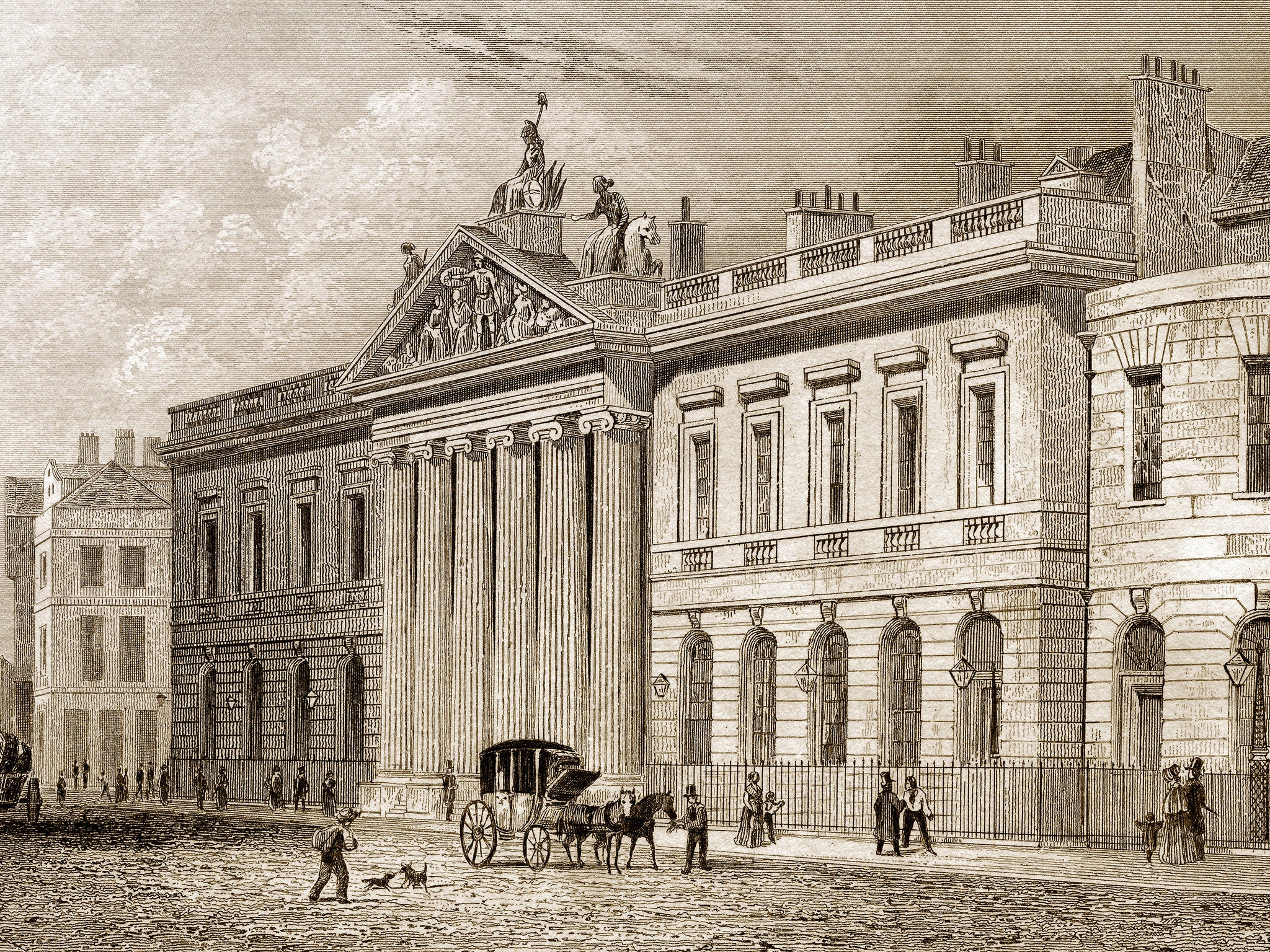
Less bloody than the First Colonialism, it became more brazen and no less cruel. Both the First and Second Colonialisms focused on material resources and slaves. In the 19th century, up to 40 per cent of Europe’s imports and exports were between the great powers and their colonies. This so-called free trade brought misery to the peoples of the colonies, but great wealth to the mother countries. In 1999, the African World Reparations and Repatriation Truth Commission estimated the loss to the continent as $777 trillion.
This is certainly an exaggeration, but looking back at how Madrid and Lisbon, London and Paris, Brussels and Amsterdam expanded in those years, it is clear that this form of colonialism too was highly profitable. Even after the writing off of debt of the poorest countries under the aegis of the Paris and London Clubs at the turn of the millennium, the financial burden on developing countries was around $2 trillion, and net interest on these loans brought the West over $200 billion per year.
It is indisputable that this could not have come about without the connivance of corrupt or incompetent local potentates, but it is no less obvious that the Second Colonialism, like its predecessor, was developed and operated by European and Trans-Atlantic civilisation under the patronage of the world’s new superpower. There is nothing surprising about the fact that it was US banks that faced default in the early 1980s, when Mexico, Argentina, Venezuela, Peru and other countries proved unable to continue to service their debts.
Colonialism was a hot topic in the 1980s and engendered a host of human rights movements. Hollywood celebrities demanded debt forgiveness and a new, fair world order. Despite huge sovereign debt and the trade restrictions they faced, many developing countries were, nevertheless, beginning to clamber out of extreme poverty. The technologies which had been transferred to them were having an effect, and their goods were being granted preferential export terms to the markets of the metropolitan countries.
It was at this point that a new phenomenon emerged, which we have called the Third Colonialism. This form of exploitation operates in a subtler and more insidious manner, which explains why until now it has hardly been described anywhere other than in a few inarticulate protest broadsides and, to some extent, in commercials released by Donald Trump in the course of his campaign for the US presidency. We see the Third Colonialism as more effective than its predecessors.
The Third Colonialism is based on the subversion of elites, teaching them how to manipulate finance and siphon money into offshore centres that are part and parcel of the Western economies
If the First Colonialism was grounded in military force, and the Second in the financial power of loans, the Third Colonialism is based on the subversion of elites, teaching them how to manipulate finance and siphon money into offshore centres that are part and parcel of the Western economies. To make matters worse, the countries being exploited in this manner often rack up debt. It is not within their power to raise the quality of life of their populations to anything like the standards of the Golden Billion, but their elites are desperately keen to enjoy the benefits of Western-style civilisation. Because most of these states still lack democratic institutions and dependable rule of law, the riches of their elites have been gained through corruption and could be called into question by the current or future regimes.
Very few people at the highest levels of power feel secure enough to keep their wealth in their homeland. Increasingly, the wealthy elites of Africa and Asia buy property in London, set up offshore companies and open secret bank accounts. This state of affairs is warmly welcomed by the financial services industry of the West, and that too is hardly surprising, because it is the cornerstone of the Third Colonialism.
Through the efforts of Western banks, lawyers and accountants, corruption, which for centuries was largely a national problem, has become an international phenomenon. It has been globalised. It is based on links between the corrupt elites of poor nations and the international financial centres of the West. No longer is there any need to establish East India Companies and send in the troops, as in past centuries, to conquer far-off lands: the natives themselves fly in, bringing their riches with them.
Corrupt government officials and fake entrepreneurs are stealing from their poor countries five times more money than their nations are paying on loans from international banks
This is happening on an impressive scale. Today, by even the most conservative estimates, the net outflow of financial resources from developing countries is about $1 trillion a year: at the beginning of the millennium it was estimated at less than $200 billion. To put it another way, corrupt government officials and fake entrepreneurs are stealing from their poor countries five times more money than their nations are paying on loans from international banks. For sheer brazenness, the Third Colonialism has left the Second far behind.

In spite of that, even highly respected international organisations such as the Financial Action Task Force and Transparency International prefer not to notice the phenomenon and undertake practically no measures to counteract it. Instead, they periodically deliver speeches on the need to ensure financial transparency. The international network of corruption is the most wretched by-product of globalisation. The key to combating global corruption is to be found, not in the corrupt countries themselves, but in the United Kingdom and in Europe as a whole, which are the birthplace of this and the earlier forms of colonialism.
It was Europe that created the new financial architecture through which the flows of dirty money from poor and badly ruled countries stream. The West allows corrupt national elites to enrich themselves in criminal ways, and reaps the benefits. In these circumstances there is no possibility of the poor nations defeating corruption on their own. What is needed is for the rich nations of the West to stop promoting it.
As we have noted, the international system of corruption did not just happen: it was deliberately established in order to perpetuate the West’s dominance over the rest of the world. In maintaining this global status quo, however, in redistributing the world’s resources to its own benefit, Europe is placing itself at risk. By promoting corruption in developing countries, the First World is destroying itself. The populace of plundered countries become an easy prey for extremists and religious fanatics and the ensuing wars generate torrents of refugees. These have flooded the Old World and caused a migration crisis.
Every stolen dollar or ruble can be found: all that is needed is the will to do so and to undertake global chemotherapy. It will hurt, it will be unpleasant, but without it we will not survive
Ultimately, international networks of corrupt officials have sprung up that would have been unimaginable in the past, a close-knit alliance of venal elites residing in both developed and developing Worlds. The huge amounts of dirty money at the disposal of a small circle of individuals increases the risk of it ending up in the hands of terrorists.
The Third Colonialism will lead, sooner or later, to a global economic collapse and the end of civilisation in its present form. It is not unreasonable to liken the international financial oligarchy to a cancerous tumour that is feeding on mankind and, as we know, a tumour dies only with the death of the entire organism. Money does, however, act in accordance with the first law of thermodynamics: it never just disappears. Every stolen dollar or ruble can be found: all that is needed is the will to do so and to undertake global chemotherapy. It will hurt, it will be unpleasant, but without it we will not survive.
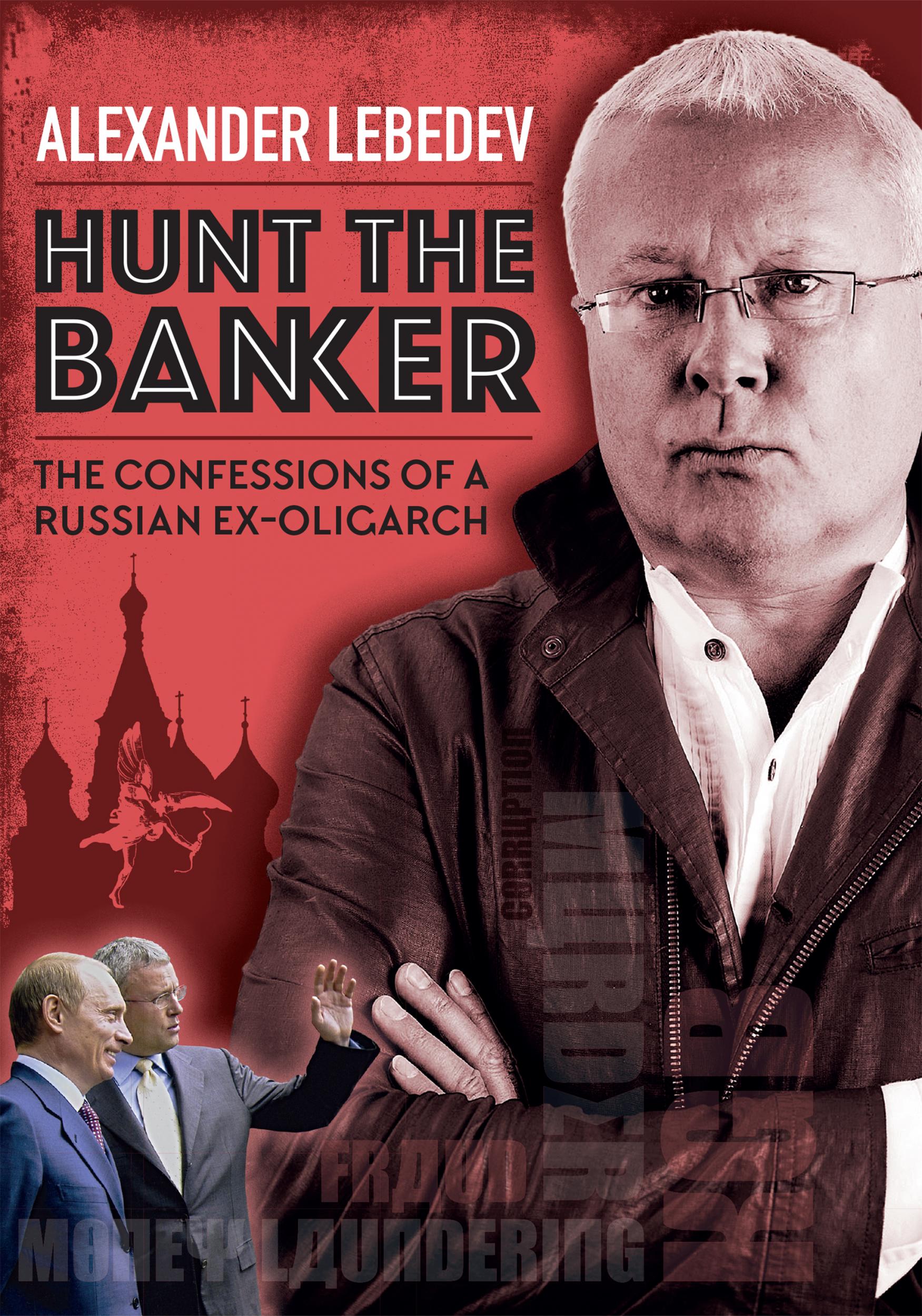
As I am writing these lines, new sanctions are being imposed on Russia. The Russian Foreign Ministry has announced it is working on retaliatory measures. It could not be simpler! Russia needs officially to propose (or better still, to demand) that the West return the more than $100 billion stolen from Russian citizens by criminal bankers and salted away abroad. We should formulate a national policy for getting this money back, involving all the appropriate institutions and levels of government, from the Ministry of Foreign Affairs, the Ministry of Finance and Parliament to the Prosecutor General’s Office, the Interior Ministry and the state-run media.
Final part next Sunday
Alexander Lebedev is the father of Evgeny Lebedev, a shareholder in The Independent. His new memoir, Hunt the Banker, was published by Quiller on 12 September, priced £20. Order from bookshops or www.quillerpublishing.com
Join our commenting forum
Join thought-provoking conversations, follow other Independent readers and see their replies
Comments